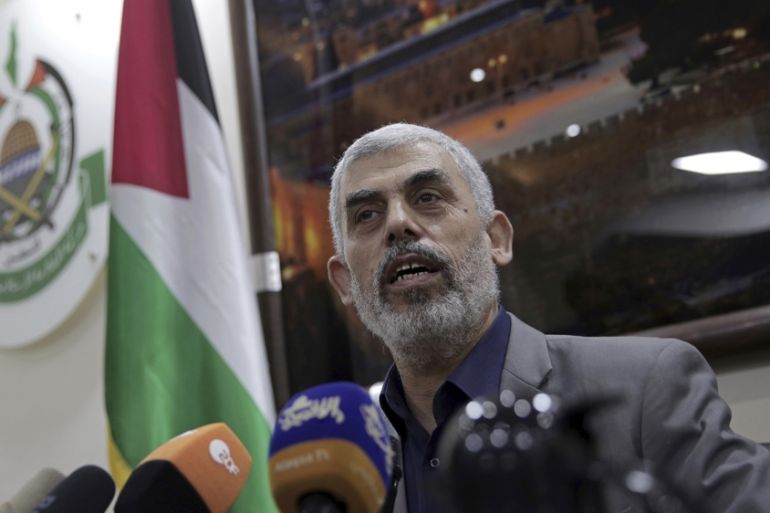Since the October 7 attack by Hamas, tensions have escalated between Israel and the Palestinian group. At the center of it all is Yahya Sinwar, Hamas’s leader in Gaza. Israeli authorities have labeled him as a mastermind behind the attack, which left 1,200 people dead and 240 hostages. Sinwar, also known as Abu Ibrahim, has been portrayed by Israeli officials as a “dead man walking” and described as the “face of evil.” But who is Yahya Sinwar, and what is his background?
Born in 1962 in a refugee camp in Khan Younis, southern Gaza, Sinwar comes from a family that was displaced during the Nakba in 1948. He has a long history with Hamas, having been arrested multiple times by Israeli authorities for his involvement in “Islamic activities.” During his time in prison, Sinwar became close to Hamas’s founder Sheikh Ahmed Yassin and played a key role in establishing the group’s internal security organization, al-Majd.
Sinwar’s reputation for being uncompromising in dealing with Palestinians who collaborated with Israel was solidified by former Shin Bet officer Micha Kobi’s account of Sinwar boasting about burying an alleged informer alive. In 1988, Sinwar was arrested and charged with plotting the murder of two Israeli soldiers and killing 12 Palestinians, resulting in four life sentences.
During his 22 years in prison, Sinwar remained disciplined, learned to speak and read Hebrew fluently, and became a leader among the prisoners. He was eventually released in 2011 as part of a prisoner exchange between Israel and Hamas. After his release, Sinwar quickly rose through the ranks of Hamas, becoming a member of its politburo in 2013 and later assuming the role of leader in Gaza in 2017.
Sinwar has been described as a skilled leader and a pragmatist who shifts between political engagement and armed violence according to circumstances. In 2018, he signaled a move towards non-armed resistance, stating that another war with Israel was not in Hamas’s interest. However, by late 2022, Sinwar’s rhetoric seemed to change, with threats of an “open confrontation” following Israel’s election of a right-wing government.
Today, Sinwar is second only to Ismail Haniyeh in Hamas’s hierarchy. Some analysts believe he plays a key role in negotiations over the exchange of captives and prisoners between Hamas and Israel. However, peace between the two sides remains elusive, with Sinwar viewed by Israeli and American officials as a figure of violence and Hamas as an organization beyond the pale.
Critics argue that labeling Sinwar and Hamas as nihilistically violent allows Israel and the West to sideline legitimate political aims, such as the release of political prisoners and halting settlement expansion. The dehumanization of enemies, including ordinary Palestinians, strengthens Israel’s argument for continuing the attack in Gaza despite international calls for a ceasefire.
As tensions continue to rise, the fate of Yahya Sinwar remains uncertain. His capture or death could be seen as a victory for Israel, but it may also prolong the punishment of Gaza. With a less centralized leadership structure, Hamas could still maintain control in Gaza even without Sinwar. Ultimately, the conflict between Israel and Hamas shows no signs of resolution, leaving the lives of innocent civilians caught in the crossfire.




